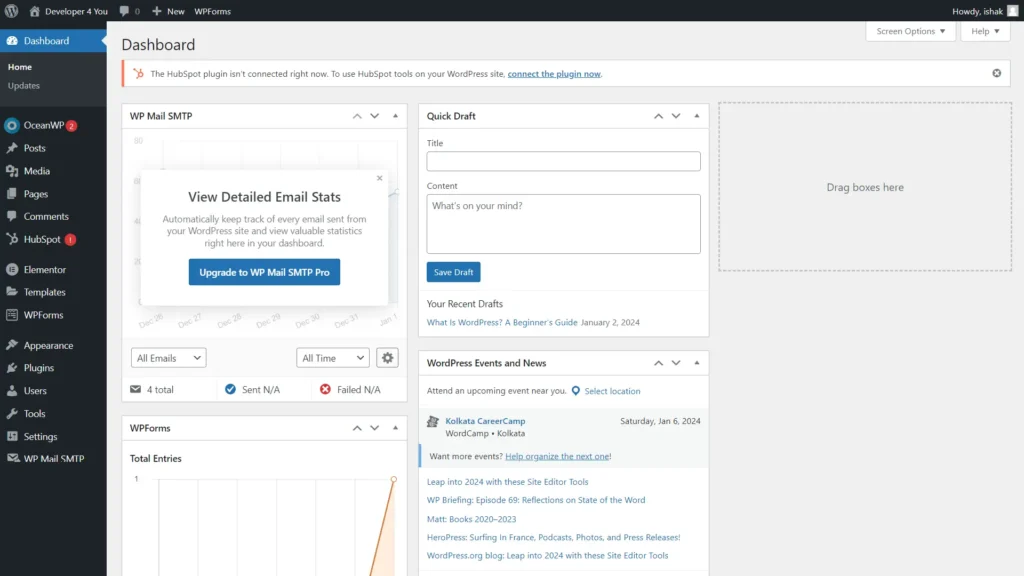WordPress is a popular and widely used content management system (CMS) that allows users to create and manage websites and blogs. It provides a user-friendly interface, making it accessible for individuals with little to no coding or technical expertise. WordPress is open-source, meaning that its source code is freely available, and users can modify and customize it according to their needs.
Key features of WordPress include:
- Themes: Users can choose from a variety of themes to change the design and appearance of their websites. Themes determine the layout, color scheme, and overall style of a site.
- Plugins: WordPress has a vast ecosystem of plugins that extend its functionality. Plugins are additional pieces of software that can be added to a WordPress site to add features such as contact forms, SEO optimization, e-commerce capabilities, and more.
- Content Management: WordPress makes it easy to create, edit, and organize content. Users can publish blog posts, pages, and multimedia content such as images and videos.
- User Management: WordPress allows multiple users with different roles and permissions, making it suitable for collaborative content creation and management.
- SEO-Friendly: WordPress is designed with search engine optimization (SEO) in mind, and it provides features and plugins to help improve a site\’s visibility on search engines.
- Community and Support: Due to its popularity, WordPress has a large and active community of users, developers, and contributors. This community provides support through forums, documentation, and various online resources.
Whether used for personal blogs, small business websites, or even large corporate sites, WordPress has become a versatile and powerful platform for building and managing online content.

